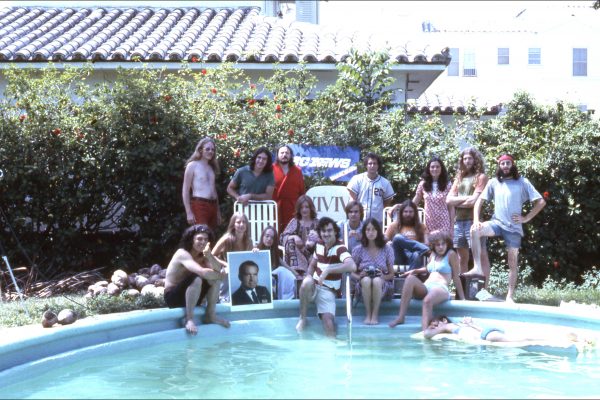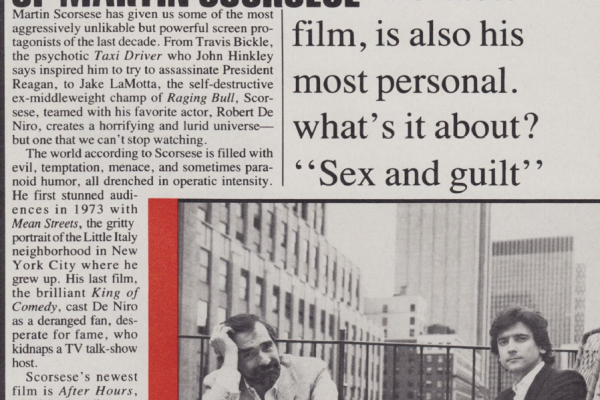Original Publication: Vouge, September 1986
In today’s workplace, everybody’s a survivalist. Are we winning the struggle – for money, perks, prestige – and losing ourselves?
It is hardly new to say that work can drive you mad, that success is as addicting as crack – and just as dangerous and destructive. But in Modern Madness: The Emotional Fallout of Success (Addison-Wesley), Douglas LaBier, Ph.D., argues, with compelling examples, that many corporations are structured so that sick people get to the top faster than sane ones, and that many careerists aged twenty-five to forty-seven have settled for mindless materialism while demanding both material rewards and personal fulfillment from their work.
A Washington, DC, psychoanalyst, LaBier has spent seven years studying the hidden passions that drive the achiever. What he has found are a lot of “troubled winners,” successful people suffering from boredom to burnout because they have made their careers their first priority. But they find that work cannot give them all they want out of life. So they consume aimlessly, discard relationships, harden their hearts, and deaden their souls.
The crazy boss, the sycophantic hatchet man, the workaholic who has no personal life, the yuppie, and the working mother trying to sustain both family and high-powered career all come under LaBier’s incisive scrutiny. To understand exactly why the blind ambition so exalted today is really a prescription for madness, he has read widely in philosophy, literature, and history.
And those who are supposed to help, his fellow analysts, often make matters worse, he says, because they see most problems as rooted in childhood conflict instead of in the contemporary workplace. These therapists don’t understand the “new normalcy.”
The new normalcy is wanting to have it all from your career; it is not healthy.
Maureen Orth: How can being a success make you a “troubled winner”?
Douglas LaBier: It may sound crazy to say that successful adjustment can result in emotional disturbance, but that is, in fact, the exact situation we have in our culture. A lot of young careerists find that as they move up, their work requires more and more self-betrayal: they tell themselves that their work has meaning when it doesn’t; they adapt to a management system that wants not only to beat but “to kill” the competition; they pretend they’re excited by what they’re doing when they’re not. The money and the perks are the tradeoff for accepting these feelings.
M.O.: How are these feelings expressed?
DL: One example is a man who had recommended a plan to upper-level management which was turned down. When I asked him how he felt about that, he said, “I have to believe I’m in agreement with them all the way. If I allow any thoughts of disagreement to creep into my awareness, they open up a Pandora’s box and I may end up hating myself even more than I already do.” A lot of people just ignore their real values, their sense of truth, their sense of integrity, because to be too aware of these creates conflict.
MO: Why do people invest so much of their identity in their careers?
DL: The younger careerists are afraid of not being able to make it successfully in this world of intense competition and shrinking resources, and they want a piece of the pie before it’s too late.
Also, a lot of people put everything into their work because they don’t really have an interest in other people. When they shed their work role, they’re terrified, because they don’t know how to relate in any other way. For example, a high-level government attorney I know is superconfident, highly respected, but his hand shakes when he tries to call up a woman for a date. He’s terrified of interpersonal encounters. A lot of people don’t want the hassle. They just want to be comfortable. One patient told me, “Our lives are lives of desperate comfortableness.” And that leads to all kinds of aimless consumption – of people as well as objects. They treat love partners as things to be sampled, consumed, and then thrown out. And all this is done with a kind of deadness. The end result is that these human beings don’t develop or grow. The yuppie, for example, is really a caricature of the negative side of the new careerist who has perverted achievement into greed, and self-development and fulfillment into hedonistic escapism.
MO: A generation ago, President Kennedy said, “Ask not what your country can do for you but what you can do for your country.” Today, the phrase seems to be “Go for it.” What happened?
DL: Yuppies are the direct descendants of the hippies. They grew up absorbing the counter-culture of the ‘sixties – the civil-rights movement, the anit-war movement, the struggle for women’s rights. They assume that there can be equality between the races and the sexes, and they’ve gone on to become very practical, to think clearly of what’s in their own best interest. What hasn’t been noticed is their latent idealism, which also comes from the counter-culture but which is not acted upon because they sense a lack of leadership to support it.
A lot of this is being depicted in contemporary literature, in what academicians call a post-modern view. The modernist mentality, which started in the first part of this century, had to do with feeling a split between your inner self and your functional self – how you perform to fit into society, how you make a living, etc. The modernist attitude affirmed the inner self by opposing authoritarianism, whether it was from the church, the state, fascism, or large institutions. The post-modern view, which is popular among yuppies and the young careerists living in the conservative Reagan era, has to do with embracing the very things that the modernists would have opposed, namely fitting in, embracing the values of the mainstream culture – in this case, the workplace without a critical sense of what the consequences of adapting and adjusting successfully are. I think the real legacy of all this is an absence of passion.
MO: How does this lack of passion affect personal relationships?
DL: The downside of the sexual revolution has been a loss of intimacy and more use of one another as consumer objects. But at the same time there are hopeful signs: when young people are asked what they want in relationships as opposed to what they have to settle for, they really long for more fulfillment, for love, for mutuality. The question is how to develop all that in a society like ours.
MO: This whole discussion seems to be about asserting one’s values.
DL: I think there is communality between the truth of psychoanalysis and traditional religious and philosophical systems of both East and West. The common thread is that a life of suffering or misery, of emotional disturbance, comes from a life that is too devoted to getting for oneself, manifested as egocentrism or childish resentment and envy about what other people have.
MO: What is the antidote?
DL: A life of happiness comes from following a path that lets you develop uniquely human qualities: a capacity for love and reason, for courage and generosity. It has to do with developing the heart and passion for life.
This article is typed from the original material. Please excuse any errors that have escaped final proofreading.




No Comments